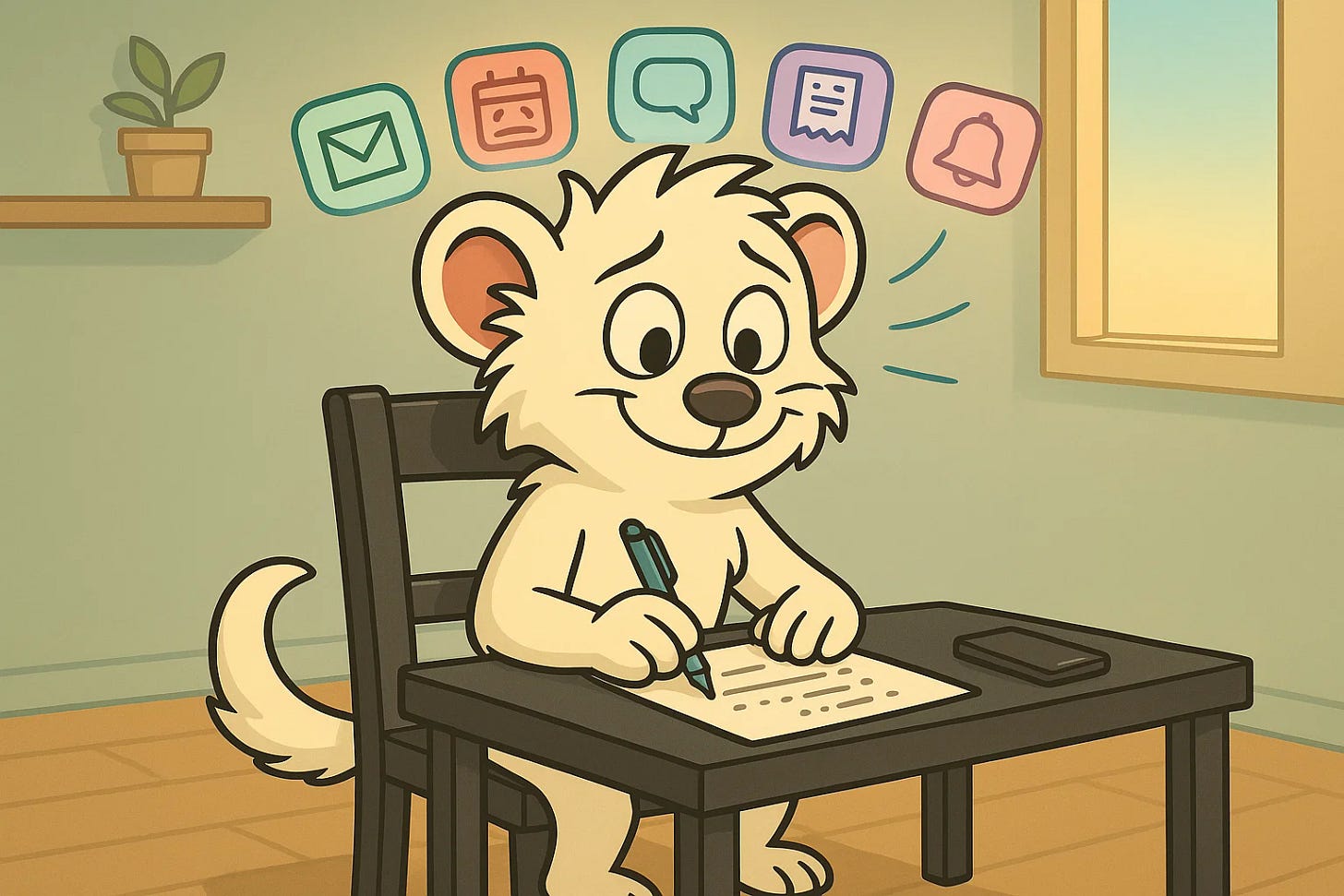How writing things down clears your overwhelmed ADHD mind
How scribbling your thoughts can turn overwhelm into clarity.
Feeling overwhelmed is a regular part of ADHD. You might be feeling it right now as you read this email.
Your brain is spinning with too many thoughts at once. You know you need to get started on work, but instead you’re frozen. There’s that one task you keep avoiding, the text you forgot to answer, the appointment you’re worried you’ll miss. You have plans with a friend this weekend, and you’re already rehearsing how you’ll respond if a certain topic comes up. It’s all tangled together in your head. So you freeze. Or you start scrolling your phone without meaning to, guilt rising as the minutes slip by.
If I had to sum up the ADHD experience in one word, it would be overwhelmed.
But there’s one habit that can help clear some of that mental noise. Writing.
Not bullet journaling. Not a fifty-dollar aesthetic notebook. Just grabbing a pen and dumping thoughts onto paper. Or typing them out on your phone if that’s easier.
Just write it out. Seriously.
I know what you’re probably thinking:
“Writing won’t help. I just need to finish my to-do list.”
“I’ve tried journaling before. It never sticks.”
“That kind of thing works for other people, not me.”
Totally fair. Most of us picture journaling as some ideal routine. Writing every morning with five thoughtful prompts, a fancy pen, and a view of the city skyline at sunrise. But let’s be honest, that kind of structure rarely sticks for ADHD brains.
That’s not the kind of writing we’re talking about.
This is messy. It’s quick. It’s something you do in the moment, right when your brain feels like it’s spinning out. No structure. No pressure. Just a way to get the noise out of your head so you can finally think straight.
Say you’re at your desk, trying to work, but your mind won’t settle. You’ve opened ten tabs, checked your email three times, and now you’re staring blankly, frozen. That’s when you pause and just write down all your thoughts:
“I can’t focus. I’m anxious about that meeting. I forgot to pay the water bill. I feel behind.”
And something shifts.
The swirl that felt personal and heavy, like “I’m failing” or “I can’t keep up,” turns into something you can actually look at. On paper, it stops being self-blame and becomes information. You realize you’re not broken. You’re overloaded. Maybe the day didn’t go as planned. Maybe your expectations were too high. Either way, now you can respond instead of spiral.
You breathe a little easier. The tightness in your chest loosens. It becomes clearer what you need next. Maybe a snack. Maybe a quick reset. Maybe just choosing one task and starting there.
You’ve taken the mess out of your head and given it somewhere to land. And in the space that opens up, action feels possible again.




